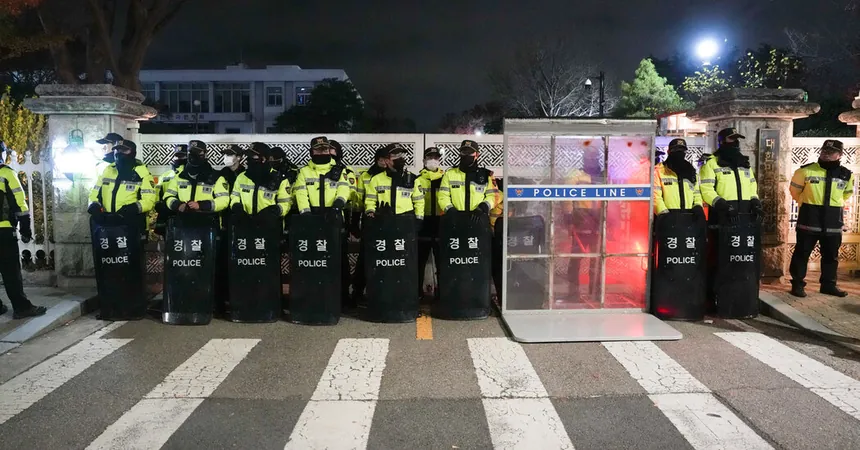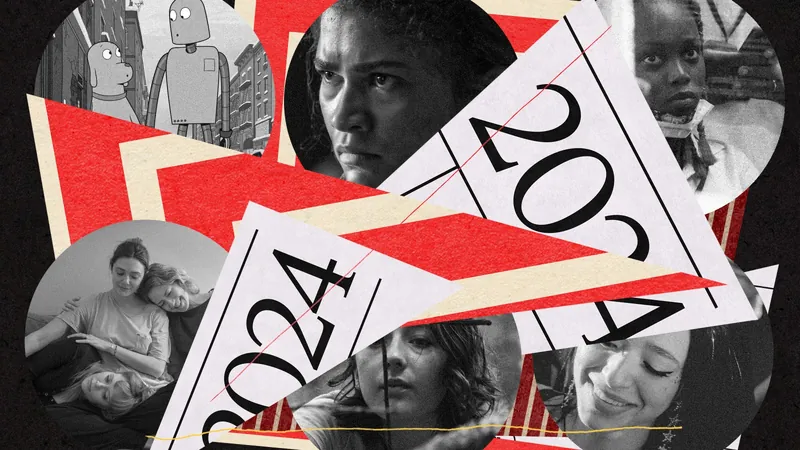
South Korea's President Yoon Imposes Martial Law: What You Need to Know
2024-12-03
Author: Ming
**Understanding the Declaration of Martial Law**
According to the South Korean constitution, the president can implement martial law in situations of military necessity or to maintain public safety during war or national emergencies. With this declaration, Army General Park An-Su has been appointed as the martial law commander, tasked with imposing serious restrictions. These include banning all political activities, citizen rallies, and media publications unless they are sanctioned by the martial law command. Violating the decree could result in immediate arrest without a warrant.
In a bid to stabilize the country’s medical response amid the crisis, the martial law command has ordered all medical personnel, including those currently striking, to resume work within 48 hours.
**Background on President Yoon Suk-yeol**
Elected in a closely contested race in 2022, Yoon's rise to the presidency represented a shift back to conservative governance, emphasizing a firmer approach toward North Korea and a closer alliance with the United States. His administration has often faced criticism, particularly for its aggressive stance against what he terms ‘fake news’ and misinformation. Following parliamentary elections in April where his party suffered significant losses, Yoon now navigates a challenging political landscape as he contends with an opposition majority in the National Assembly.
**Reactions From Political Opponents**
The declaration has sparked outrage from various political figures. Han Dong-hoon, leader of Yoon’s People Power Party, publicly criticized the martial law as "wrong," indicating a potential rift within the ruling party. Meanwhile, Lee Jae-myung, the leader of the opposition Democratic Party, condemned Yoon's actions in a video message, rallying citizens to protest the declaration. “There is no justification for martial law. This action represents a betrayal of the citizens,” he declared.
Protests erupted outside the National Assembly as citizens called for the lifting of martial law. Images from the scene showed heavy police presence aimed at containing demonstrators fighting against the restrictions on their rights.
**What Does This Mean for the Future?**
In the midst of escalating tensions and a supreme legislative struggle, it is critical to understand how martial law can be potentially lifted. Under South Korean law, a majority vote in the legislature can revoke the martial law declaration. Following a rapid emergency meeting, the National Assembly moved to adopt a resolution demanding its repeal, pushing Yoon's declaration toward obsolescence.
In the backdrop of these events lie challenges confronting the nation's governance. The current administration claims that the legislative actions by the opposition have led to dysfunction and paralysis in essential state functions. Yoon has condemned the opposition's budget cuts and move for impeachment as detrimental acts against national security and governance.
**Final Thoughts**
As South Korea grapples with this unprecedented crisis, the balance between national security and democratic freedoms hangs in the balance. The government’s assertion of martial law raises significant questions about the future of political discourse in the country and the potential for civil unrest. It remains uncertain how the situation will evolve as both sides prepare for a power struggle that could determine the very fabric of South Korean democracy.
Stay tuned for live updates as this developing story unfolds!


 Brasil (PT)
Brasil (PT)
 Canada (EN)
Canada (EN)
 Chile (ES)
Chile (ES)
 España (ES)
España (ES)
 France (FR)
France (FR)
 Hong Kong (EN)
Hong Kong (EN)
 Italia (IT)
Italia (IT)
 日本 (JA)
日本 (JA)
 Magyarország (HU)
Magyarország (HU)
 Norge (NO)
Norge (NO)
 Polska (PL)
Polska (PL)
 Schweiz (DE)
Schweiz (DE)
 Singapore (EN)
Singapore (EN)
 Sverige (SV)
Sverige (SV)
 Suomi (FI)
Suomi (FI)
 Türkiye (TR)
Türkiye (TR)